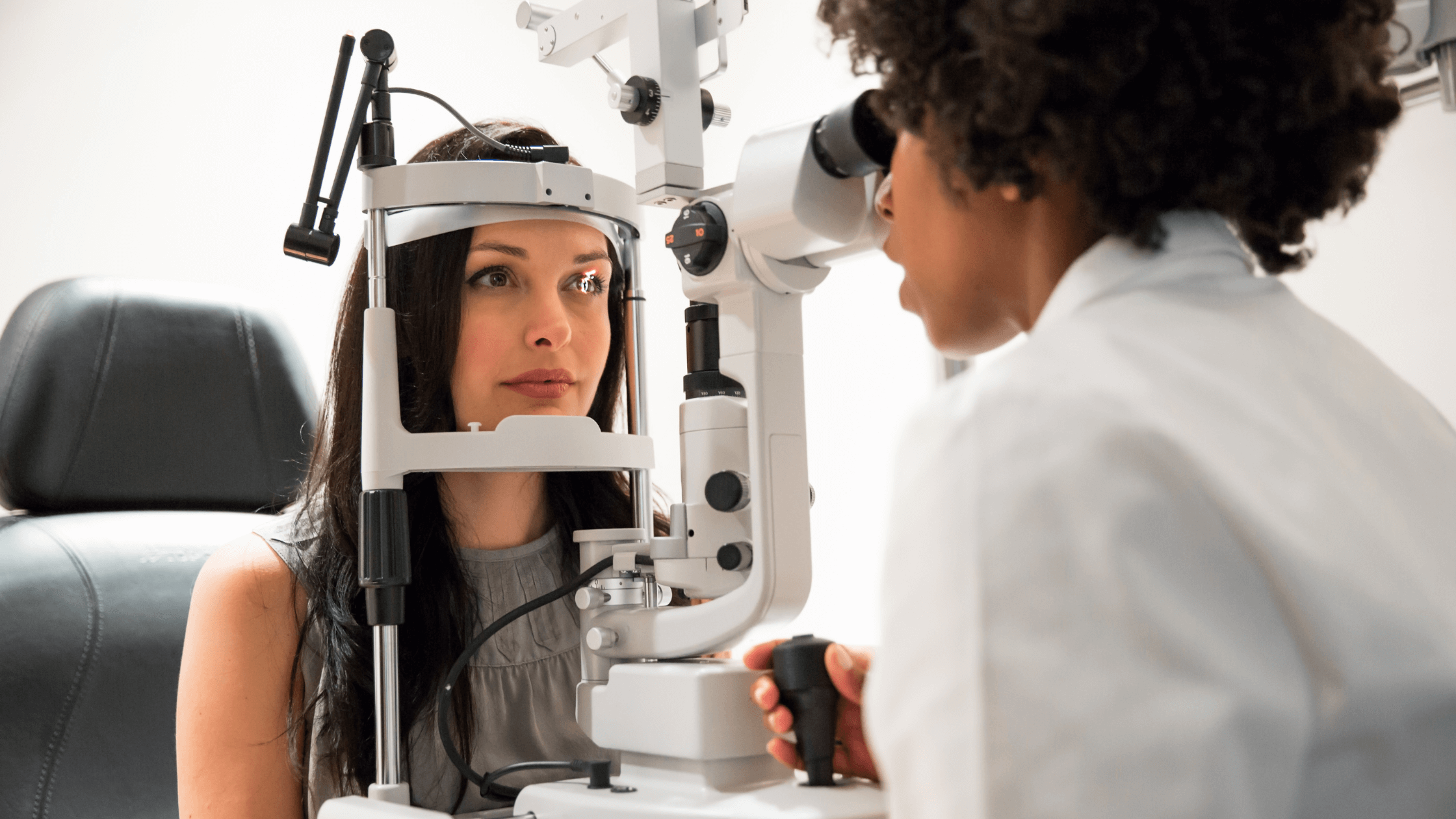
18 Aug The Importance of Eye Exams for Detecting Macular Degeneration Early
Macular degeneration is one of the leading causes of vision loss, especially in people over the age of 50. This condition affects the macula, the small but powerful part of the retina that allows you to see fine details, recognize faces, and read clearly. When the macula becomes damaged, your central vision begins to fade, making everyday activities harder.
Because macular degeneration often develops without early warning signs, regular eye exams are one of the best ways to catch the condition early and protect your sight.
What Is Macular Degeneration?
Macular degeneration, often called age-related macular degeneration (AMD), happens when the macula deteriorates. There are two types:
- Dry Macular Degeneration: The most common form. It develops slowly over time as the macula thins and protein deposits build up.
- Wet Macular Degeneration: Less common but more aggressive. It occurs when abnormal blood vessels grow under the retina and leak fluid or blood, causing faster vision loss.
Why Early Detection Matters
The challenge with macular degeneration is that you might not notice symptoms at first. By the time blurry spots, wavy lines, or trouble recognizing faces appear, the disease may already be advanced.
Eye exams allow your doctor to look directly at your retina and detect early changes before you notice them yourself. Catching AMD early gives you the best chance of slowing its progress with treatments such as lifestyle changes, eye vitamins, or medications for wet AMD.
Common Risk Factors
Certain factors increase your risk of macular degeneration, including:
- Age 50 and older
- Family history of AMD
- Smoking
- High blood pressure or heart disease
- Poor diet low in fruits, vegetables, and omega-3 fatty acids
- Too much sun exposure without UV protection
If you have any of these risk factors, comprehensive eye exams are even more important.
What Happens During an Eye Exam?
During an exam, your eye doctor may use retinal imaging or dilation to get a clear view of the back of your eye. These tools allow them to spot tiny changes in the macula that you cannot see. Eye exams are quick, painless, and essential for protecting long-term vision.
Protecting Your Vision
There is no cure for macular degeneration, but early detection and proactive care can help preserve your sight. Healthy habits like eating nutrient-rich foods, wearing UV-protective sunglasses, and avoiding smoking also support eye health.
If it has been more than a year since your last eye exam, now is the time to schedule one. Regular checkups make all the difference in catching macular degeneration early and protecting your vision for the future.

